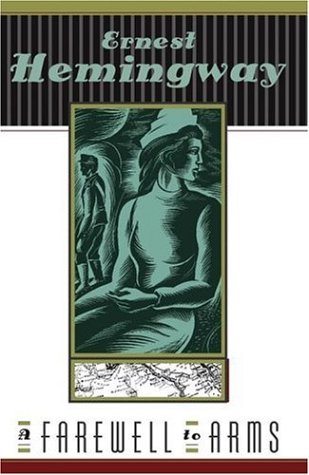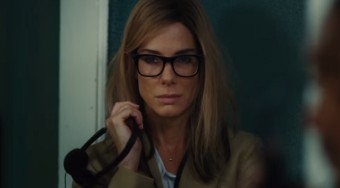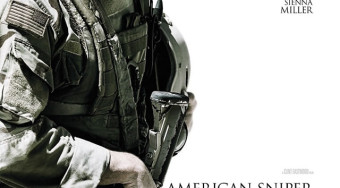Blog
Book Review: A Farewell to Arms

“I will apologize on behalf of Ernest Hemingway because that’s who’s to blame here,” states Bradley Cooper’s character in the 2012 drama Silver Linings Playbook. His character had been shocked by the ending of Hemingway’s novel, A Farewell to Arms, and had thrown his paperback copy of the book out the window in the middle of the night, awakening his parents who demanded an apology. Instead of apologizing for his unruly behavior, the character had placed the blame on Hemingway himself.
Not remembering this particular scene, I started reading A Farewell to Arms a few weeks ago during a trip to Peru. After finishing it, I was reminded of the important role the book played in the 2012 film and I can now state unambiguously that despite a tough-to-read ending, Hemingway has nothing to apologize for.
According to Biography.com, Hemingway was inspired to write this novel after serving in World War I. The website notes that during the war, Hemingway served as an “ambulance driver in the Italian Army” and after being injured, he was hospitalized and “met a nurse named Agnes von Kurowsky, who soon accepted his proposal of marriage.” The website notes that such events provided fodder for Hemingway when he was writing A Farewell to Arms, a book which tells the story of a World War I ambulance driver who falls in love with a nurse.
Considered a classic, the novel brings readers into that war as it is slowly winding to its conclusion. Lieutenant Henry is the main character, an American serving in the Italian military who has seen the ugliness of war but believes that his side must continue to fight until the enemy is decimated. “I believe we should get the war over,” he says at one point, “it would not finish if one side stopped fighting.” Some of the other characters are tired of the war so the men in the unit argue over war (“There is nothing worse than war,” one states) and whether or not there will ever be peace. The dialogue is simple but the emotions are complicated ones that are borne out by men who have seen their friends and loved ones die and who are simply weary of fighting a never-ending battle.
To his credit, Hemingway depicts the pain of war by focusing on soldiers on the battlefield. The officers featured here know little about how much longer the war will last— they only know what they hear on the radio and what their commanding officers tell them— and so they are unaware of many of the events of the war. What they are aware of is their own camaraderie and their affection for one another. The soldiers mock each other and an idealistic priest stationed with them but they never forget who their brothers in battle are. When two of the comrades reunite near the end of the book, one of them– a ladies’ man named Rinaldi– bonds with Henry by noting “I’m glad you’re back. You are my best friend and my war brother.” After the two have spent so much time together, the love that these brothers share for one another is undeniably palpable.
In the end, after the main character endures hardship after hardship, his short-lived happiness is undermined and the unrelenting power of death surrounding him becomes readily apparent. Death and war are everywhere, he realizes, and there’s nothing he can do to stand in its way. “This is what you did. You died,” the character thinks. “You did not know what it was about. You never had time to learn… they [the omniscient forces that run everything] killed you in the end. You can count on that. Stay around and they would kill you.”
There are a lot of themes that compose this great novel, which offers up a variety of unforgettable characters (although the nurse Henry falls in love with can be frustratingly fragile). It’s remembered as one of Hemingway’s best for good reason. From the dialogue that touches on subjects like the uselessness of war to detailed descriptions of the despairing war zone to painful but persuasive thoughts on the futility of man’s battles, Hemingway knows how to tell a great story and does it remarkably well here.
He truly has nothing to apologize for. Nothing at all.
Grade: A+
Related Content
Comments
Recent Posts
Categories
- 10 Best Things
- 10 Characters
- 10 Differences
- 10 Movies
- 10 Reasons
- 10 Ways
- 5 Characters
- 5 Directors
- 5 Films
- 5 Reasons
- 5 Reasons We Love
- 5 Roles
- 9 Movies
- Appreciation
- Award Shows
- Best of the Year
- Blu-Ray/DVD Reviews
- Book Reviews
- Box Office Report
- Characters: Then and Now
- Emmy Awards
- Episode Recap
- General
- Giveaway
- Golden Globes
- Homeland
- HuffPost Live
- Interview
- Jimmy Kimmel
- Jurassic World
- Monday Spotlight
- Movie News
- Movie Preview
- Movies to Look Forward to
- Must-Read Lists
- Must-Read Reviews
- New on DVD
- New Trailer
- Oscars
- Television Review
- The Colbert Report
- The Credits
- The Late Late Show with James Corden
- The Late Show with Stephen Colbert
- The Movies of
- The Year in Movies
- Tonight Show with Jimmy Fallon
- Trailer Talk
- Trailers
- TV Trailer
- Video
- Worst of the Year












